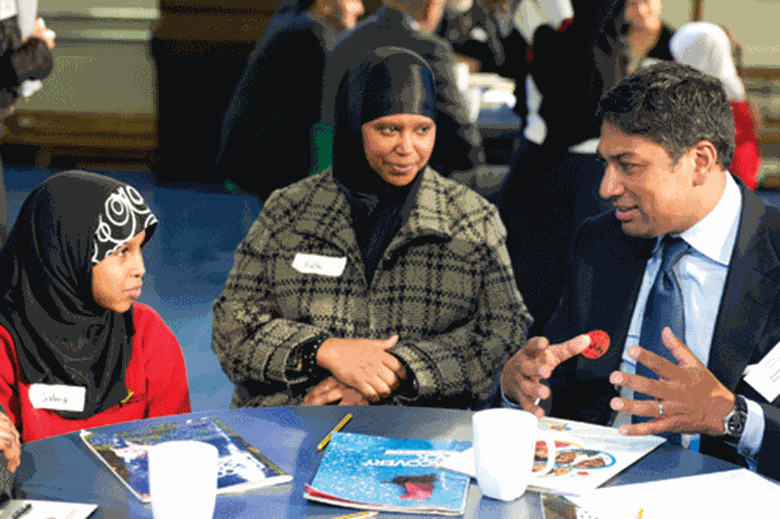How Muslim role models are providing inspiration to disadvantaged young people
Jo Stephenson
Tuesday, April 3, 2012
Mentoring scheme creates opportunities for young people in deprived areas and boosts their employability

Project Mosaic
Purpose To create opportunities for children and young people in deprived communities and boost their employability
Funding Mosaic costs around £750,000 a year and is funded from sources including donations, grants and corporate sponsorship. It is hosted by the charitable organisation Business in the Community
Background Mosaic is a mentoring scheme founded by the Prince of Wales in 2007. The idea was to provide positive Muslim role models for young people of all backgrounds and the wider community. The programme started off in London but now operates in five regions. Eighty per cent of the schools it works with are in the 20 per cent most deprived areas of the UK.
Action Mosaic runs a 12-week primary school programme for girls and their mums, which operates in 38 schools and is designed to encourage both adults and children to pursue education and consider career options.
Another mentoring scheme runs in 50 secondary schools, which includes visits to workplaces and presentations from inspirational speakers. The project also operates in 14 settings including young offender institutions, offering mentoring to young offenders and ex-offenders helping them make the transition into work, education and training.
Mentors come from different walks of life but most are professionals, with roughly 75 per cent from the Muslim community. Crucially, they will have things in common with those they work with – they may have grown up in the same area, have similar family pressures or be from the same faith.
Outcome An evaluation by Demos was published in February. It included a 12-month study of young people mentored under the scheme. Being on the programme was linked to a 10.7 per cent increase in young people wanting to go to university and a 17 per cent increase in young people’s belief that they would get a place if they applied.
The correlation between young people on free school meals and low levels of personal expectations also reduced over the course of the programme.
A Woking secondary school saw a 25 per cent rise in pupils achieving five A* to C grades following support from the Woking Asian Business Forum for male pupils. Boys who completed the scheme achieved an average GCSE points score of 443.3, 80 points higher than the average score of 363.07 achieved by all boys in the year.




